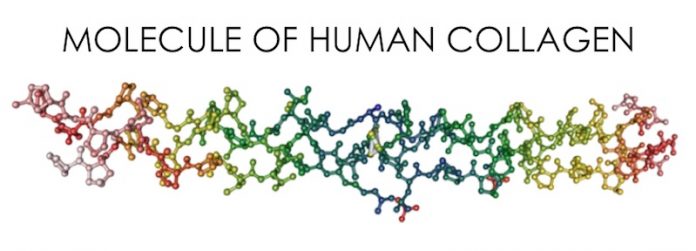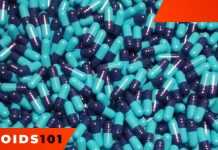Collagen is a special fibrillary protein and is the main component of all connective tissues. Collagen helps to keep your body safe from problems. Thanks to strong collagen threads, tendons, joints, cartilage, dermis, ligaments, muscles and bones are stretched, and with high physical stress, the risk of tears is eliminated. It is as important for skin. Collagen is responsible for maintaining young appearance and general health of the epidermis. But these are not the only functions of this substance, so the sufficient intake of it should be maintained
Collagen’s properties
This protein is responsible for:
- the growth of new cells in connective tissues
- moisture retention by cells
- connection of cells into structure
- elasticity of joints
- prevention of age-related skin changes such as sagging and wrinkles
Importance of Collagen for athletes
Increased physical exertion experienced by athletes significantly increases the importance of a sufficient amount of collagen in their body. For those involved in sports, the following properties may come in handy:
- strengthening of bones, ligaments and joints
- reduction of risks of injury
- prevention of thinning of cartilage
- increase in ligaments, tendons and muscles flexibility
This protein is especially important for bodybuilders and powerlifters who have injuries, discomfort (pain, crunching, limited mobility) under strain in the joints, cartilage and ligaments.
Collagen synthesis
The composition of collagen fibers, like any protein, is amino acids, the main of which are hydroxylysine and hydroxyproline. The following substances are as much important for synthesis:
- sulfur, zinc, copper, silicon and iron
- vitamins A, C, E, D F
- lutein, anthocyanidin
The first contribute to the flow of the synthesis process, the second – to normalization of collagen, and the third strengthens its fibers.
Foods contributing synthesis of Collagen
This particular protein can’t be obtained from the outside in a proper form. By consuming some food, it is then synthesized in the body. In order for it to be produced in sufficient quantities, the diet must include the following:
- proteins containing the amino acids required for collagen production
- minerals, special substances, vitamins that provide the synthesis process and the normal function of collagen
Essential amino acids are found in eggs, beans, seaweed, oily sea fish, wheat germ, chicken and turkey meat, dairy products.
Vitamins F and E can be obtained from vegetable oils, D and A – from fish, poultry, liver, and C – mostly from citrus fruit, but actually, any veggies, fruits and greens will do.
Red vegetables (like beets and red onions) contain a lot of silicon. Meat, beef liver, tongue, whole grains and green apples are rich in iron. Chicken egg yolk is full of sulfur. Wheat germ and yeast provide a lot of zinc, and seafood and beans have high content of copper.
Green tea and blueberries are rich in anthocyanins, and spinach is rich in lutein.
It is quite difficult to fill the deficiency of this protein with food intake. To provide it in the amount necessary for the body, you can use it in the form of supplements. They are represented by three types.
Animal Products with Collagen
This form is produced from parts of cattle such as joints, tendons, skin. This type of collagen is considered one of the most affordable, but it’s not quite that digestible. It penetrates poorly into the cells of the body through the epidermis and is not recommended for use in the manufacture of additives and cosmetics that improve the condition of nails, hair and skin. Such collagen is undesirable in the production of cartilage-regenerating gels, ointments and creams.
Seafood Products with Collagen
Comes from the bones and skin of marine fish. It’s far easier to digest, and it costs not so much. However, some people suffer from intolerance to it.
Vegetable Products with Collagen
It’s highly digestible and safe. The main source of it is wheat and other plant species. But these might cost a bundle, which can be a major con for some.
Collagen can be taken topically and orally. Creams and gels are used when there are problems with dermis or pain in the joints. For the prevention and treatment of various diseases of ligaments, joints and cartilage, supplements are better be ingested.



